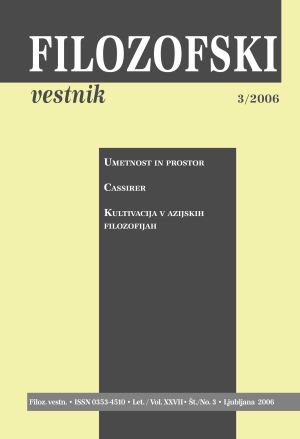The Cultivation of One’s Inner Nature (xing) in Leibniz's Chinese Writings
Keywords:
Chinese philosophy, Leibniz, nature, natural theology, intercultural philosophical communicationAbstract
The concept of inner nature (xing), a crucial part of the ideal of self-cultivation in Chinese thought, played an important role in philosophical communication between China and europe in the 17th and 18th centuries. The author differentiates between two types of attributes of the concept of nature, according to the successfulness of communication: those that adequately reached their european addressees and those that evaded the translatability of concepts. She also identifies the conceptual reasons for this selective translatability. In the process of the translation of Chinese concepts into the european framework the qualifier “rational” was added to the term “nature” (xing) by late 17th century translators. It was precisely the concept of self-cultivation, based on the inner nature (xing), translated as rational nature (natura rationalis), that provided a point of reference for the enlightenment praise of the Chinese natural morality. The morals of the Chinese were identified as proof of the sufficiency of the natural religion – and the redundancy of the religion of revelation. In the study of this problem the author thus focuses primarily on the comments on the “natural theology of the Chinese” in Leibniz’s Chinese writings, and by comparison with his other contemporary writings, analyses the hypothetical dialogicality of this concept. Based on this study the author finally shows the core foundation of the relevancy of the concept of (self)cultivation for 18th century European philosophy, Leibniz’s understanding of the Chinese concept of one’s inner nature (xing) as a condition for the possibility of epistemological and practical autonomy.Downloads
Download data is not yet available.
Downloads
Published
2016-03-05
How to Cite
Motoh, H. (2016). The Cultivation of One’s Inner Nature (xing) in Leibniz’s Chinese Writings. Filozofski Vestnik, 27(3). Retrieved from https://ojs.zrc-sazu.si/filozofski-vestnik/article/view/4382
Issue
Section
Self-cultivation in Asian Philosophies
License
Authors guarantee that the work is their own original creation and does not infringe any statutory or common-law copyright or any proprietary right of any third party. In case of claims by third parties, authors commit their self to defend the interests of the publisher, and shall cover any potential costs.
More in: Submission chapter





